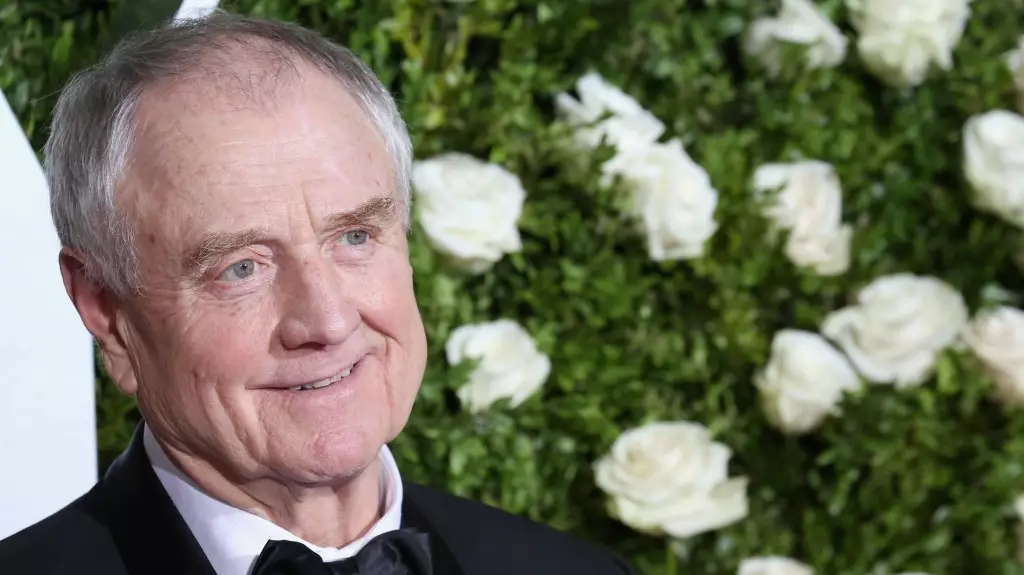The world has lost a remarkable talent in Denis Arndt, whose passing at age 86 reverberates through the corridors of theater and film. With an impressive career that spanned decades, Arndt’s ascent from a helicopter pilot during the Vietnam War to a Tony-nominated actor speaks volumes about resilience and reinvention. It is disturbing that society often overlooks the quiet giants of the theatrical world—those who, despite their contributions, often remain shrouded in the shadows of more recognizable names. Arndt’s story is not just one of personal triumph but also a poignant reminder of the artistry and dedication that underpin the performing arts.
From the Battlefield to the Stage
Arndt’s transformation from soldier to artist exemplifies a narrative that is both compelling and sadly all too common. The Vietnam experience profoundly affected him, earning him two Purple Hearts and undoubtedly shaping his perspective not just on life but on storytelling. After returning to the United States, he could’ve resigned himself to obscurity, but instead, he embraced the stage—a bold decision reflecting his charisma and untamed spirit. This leap of faith into the world of acting was not merely a career move; it was a heartfelt calling, perhaps a way to channel the complexities of his military experiences into a more profound exploration of humanity.
It’s worth noting the critical role regional theaters played in shaping his career—a common stage often targeted by those seeking the acclaim of Broadway. Arndt graced multiple prominent theaters, including the Oregon Shakespeare Festival, where he delivered moving performances in works like *King Lear* and *Othello*. His intimate connection to these roles, one could argue, was rooted in a profound understanding of the human condition—something he likely gleaned from his time in service and later experiences.
Television: A Canvas for Diverse Roles
Despite his profound impact on stage, many may remember Arndt from his notable television appearances. Spanning popular series such as *Murder, She Wrote* and *Grey’s Anatomy*, his adaptability allowed him to traverse genres and characters, earning him a place in the zeitgeist of American television. He seamlessly transitioned from compelling dramas to lighthearted series, showcasing not only talent but a deep commitment to his craft.
It’s ironic that while television often prioritizes celebrity culture, it is also the medium where countless talented individuals, like Arndt, find their niches. His role in *Basic Instinct*, as the lieutenant interrogating Sharon Stone’s iconic character, served to highlight his unique ability to create lasting impressions in moments succinctly captured on screen. Such roles undoubtedly added layers to his already rich tapestry of experiences and career highlights. But what does it say about an industry that often prizes flash over substance?
Art Reflecting Life
In a heartfelt obituary that eloquently encapsulated his spirit, Arndt was described as a “full and generous performance” in his life. This description is profoundly poetic yet underscores the unsettling truth that society pays homage to individuals like him through platitudes only when they have passed. The theater community, in particular, is often left mourning those who spent their lives illuminating the human experience through art, often without the recognition they truly deserved.
Arndt’s family poignantly noted his “wit, charm, rebel spirit,” and “passion for his art” as integral components of his identity. These traits reveal a man not limited by the roles he portrayed but someone who exhibited a rich personality that perhaps colored every interaction both on and off the stage. As we reflect on his life, it becomes crucial to champion the unsung heroes like him, who contribute so much to our culture yet often go unnoticed until their absence rings clear.
Denis Arndt’s legacy is not just his body of work or even the accolades he accrued; it is the inspiration that he lends to future generations of performers who could rise from similar backgrounds and experiences. As the curtain draws on his life, we must ensure that his contributions, his essence as a performer, and as a person continue to inspire discussions around the vital role of theater, storytelling, and the importance of acknowledging those who weave our shared cultural fabric.


Leave a Reply